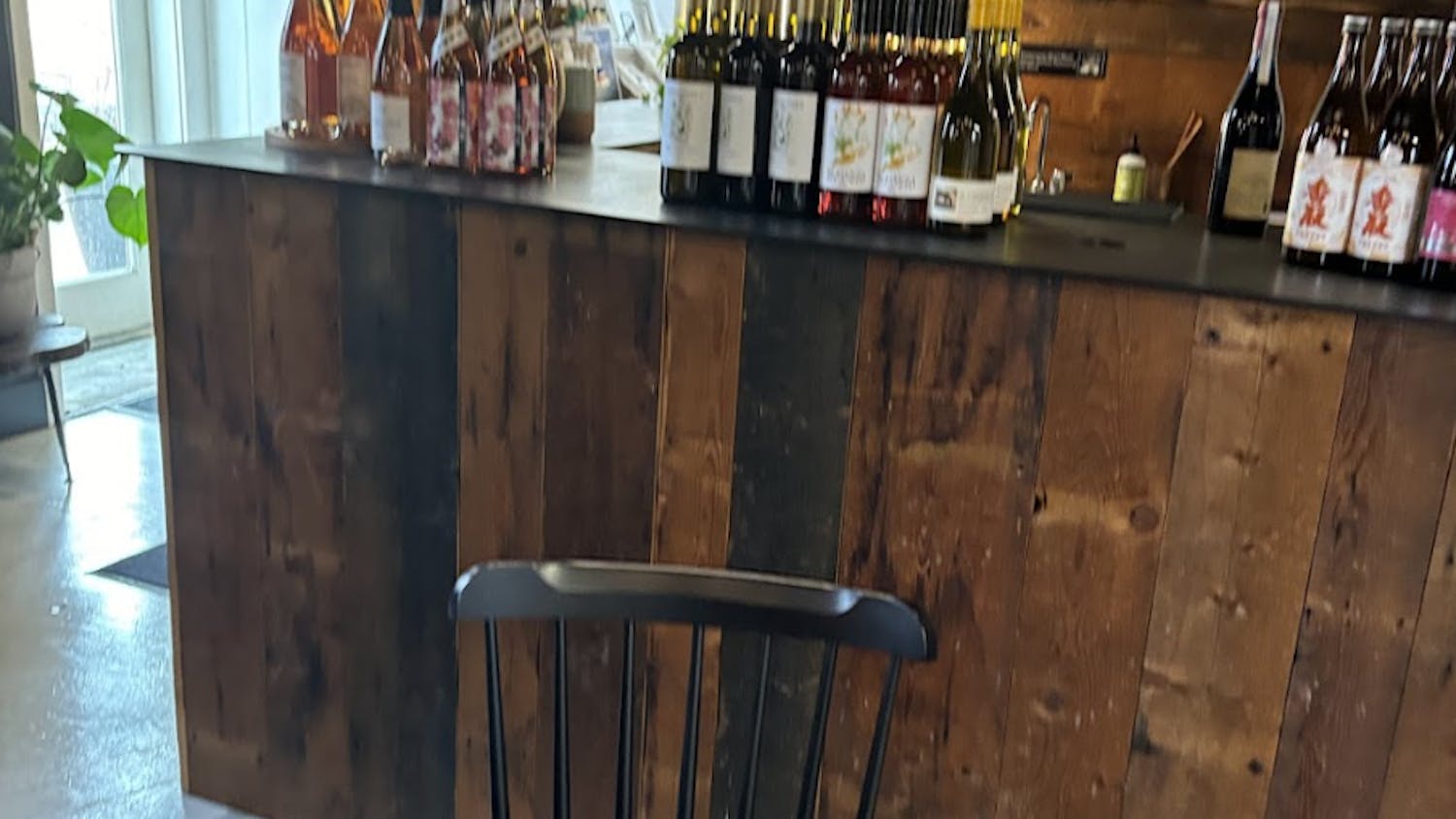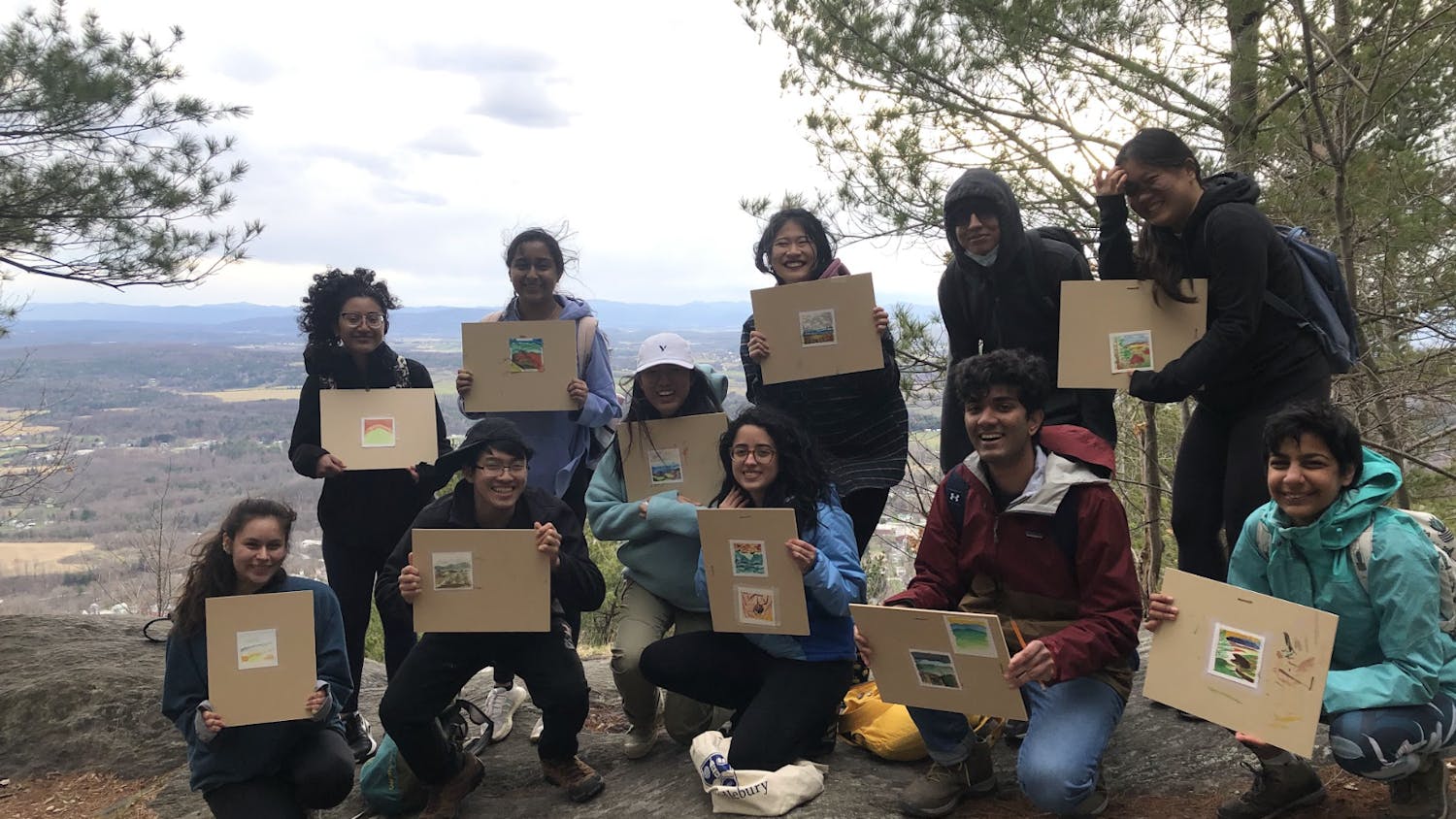April 7 marked the second anniversary of the passing of the Marriage Equity Act that legalized same-sex marriage in Vermont. The group that spearheaded the movement, Vermont Freedom to Marry, continues to fight for universal equality today. Madeleine Winterfalcon, assistant in academic administration, has worked for the organization for several years and after the legislation was passed, she sought to preserve the stories and voices of the movement. She recorded the stories of local people, each of whom were connected to Vermont Freedom to Marry’s mission. These tales are now available to the public, as Winterfalcon has partnered with the Vermont Folklife Center, located on Main Street, to craft her project, “Voices of the Vermont Freedom to Marry Movement.”
Winterfalcon has worked at the College since 2007. She enjoys oral history and believes that recording first-hand stories is priceless.
“It’s so important that the stories are preserved,” she said. “Who we are, where we’re from and where we’re going are all in those stories.”
When she moved to Vermont and got involved in the Freedom to Marry Movement, she knew that “all the stories and voices shouldn’t be lost.”
“They were amazing, exciting and needed to be recorded,” she said.
Winterfalcon began recording these stories in July 2009 and completed her interviews by the end of the summer. It took another full year to edit the work.
“You just don’t know how these things are going to affect your environment,” she said. “It’s not limited and I don’t feel total ownership of the project.”
Although the project was her idea, she feels it does not belong to her. She recorded the stories so other people could listen to them and appreciate their rich histories.
“The widest possible dispersal of this project is great,” she said. “So often people say, ‘I don’t know anybody gay,’ but once you hear someone’s story in their own voice it breaks all that down.”
She hopes people will begin to relate on a personal level to the people she interviewed.
“Theory is one thing, but practice makes it break down,” she said.
Judy Olinick, the Russian/German department coordinator, was one of the individuals to speak with Winterfalcon, and she is included in the project. She and her husband, Michael, participated in the interview because they have been involved in the Freedom to Marry Movement since it began. Olinick, who has lived in the town since 1970, was excited to help Winterfalcon.
“I think documenting the stories orally is very important so that in the future not only the details of what happened will be clear, but also the thinking, motivation and hopes of everyone involved in the equality effort,” said Olinick.
Winterfalcon was careful to get stories from a wide range of people, including “the couples themselves, their families and straight allies.”
“It’s important to realize that there are many different perspectives on the topic of marriage equality,” said Olinick.
For her, the passage of the Marriage Equality Act defined a movement towards equality and she believes the legislation “set the process in motion in a direction that cannot be stopped.”
Winterfalcon’s project is available online, thanks to the help of the Folklife Center. Winterfalcon contacted Andy Kolovos, the archivist at the center, and they organized a plan to best execute her project. Her five-minute interview clips have been edited and starting on April 7 and running until July 7, each Thursday, one of her 15 clips is posted on the center’s tumblr.com account for the public to access. The audio segments were compiled from 17 interviews.
“It seemed like an important thing not to just have on the server, but to get it out somehow,” said Kolovos.
Greg Sharrow, the director of education at the center, is also invested in both Winterfalcon’s project and the movement.
“I’m wildly enthusiastic about her project. The legislation is important but it’s also incredibly important to have context, to hear from people of how it plays out in their lives and how it has meaning and significance for people,” he said.
This project also fits the center’s general mission.
“People tend to associate us with history,” said Sharrow. “We’re a cultural research organization. We’re interested in helping communities achieve cultural goals and increase public awareness and understanding.”
Winterfalcon’s work will be archived at the center.
“We are now framing our work around a new concept: cultural sustainability. It’s a developing idea,” said Kolovos.
Caroline Grego ’11 is a geography major who works with both Kolovos and Sharrow. She studies Franco-American and Quebecois songbooks, but is passionate about what the folklife center does for the state.
“Student on campus aren’t aware enough of all the resources available on Vermont history,” she said. “The folklife center has real interviews, primary source first-hand accounts.”
Although the center documents many recordings, like Winterfalcon’s, it feels honored to have Winterfalcon’s work in particular.
“She is offering us the opportunity to know this experience,” said Sharrow.
The hope is that through its easy access online, many people will come to know and study her work.
Sheryl Rapée-Adams of Rutland, Vt. is currently a volunteer for the Vermont Freedom to Marry Movement, where she began working in 2007.
“My husband and I read some articles in the newspaper about the fact that gay and lesbian couples who were committed to each other did not have the same rights to protect their families,” she said.
This inspired Rapée-Adams to write a letter to the editor, which then prompted the Freedom to Marry organization to offer her a position as a volunteer. She was the deputy field director when the 2009 legislation was passed.
Rapée-Adams knows Winterfalcon, as they have worked together in the past.
“I am very proud of Madeleine’s work,” she said. “She was a fantastic Vermont Freedom to Marry volunteer. She was part of us, and I’m very glad Madeleine is bringing her expertise in oral history to continue Vermont’s journey to marriage equality.”
Currently, the Freedom to Marry Movement works at a federal level, but it also provides advice to individual couples.
“The most frequent phone calls and emails I get are couples and individuals who want to know what they need to do to get married and other legal pieces around marriage and family,” said Rapée-Adams.
The Freedom to Marry Movement knows it still has a lot of work ahead.
“There is always something to work out,” said Winterfalcon. “I don’t see everything being solved in my lifetime.”
Winterfalcon said that there is still a ways to go until there is universal equality, but she and others involved in the movement are hopeful that equality will catch on.
“It would be terrific if we could get young kids listening and learning from it,” said Winterfalcon. “Being open helps, and small steps help a lot.”
She believes the best way to understand is to listen.
“If you have friends, parents, grandparents; everyone has stories,” she said, “Get those stories down. Real people’s lives are the true history of our culture.”
Middlebury resident crafts innovative GLBTQ project
Comments



